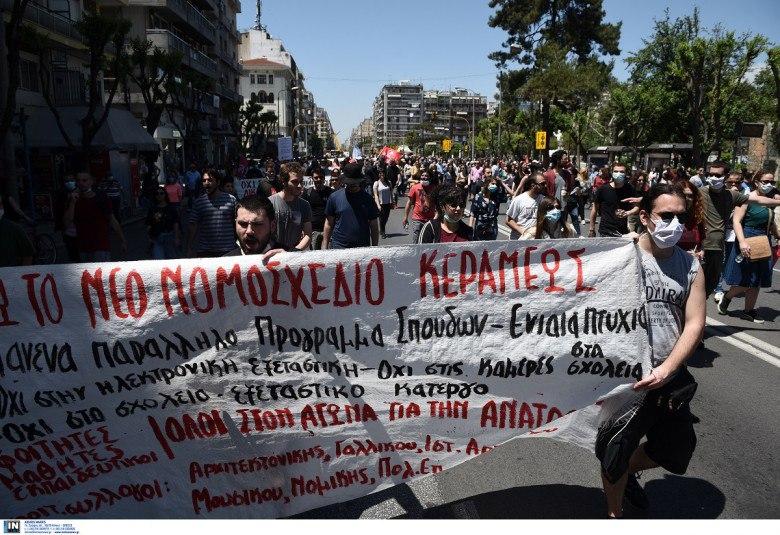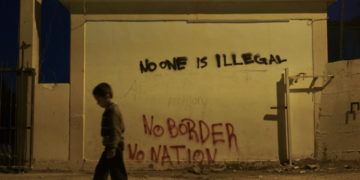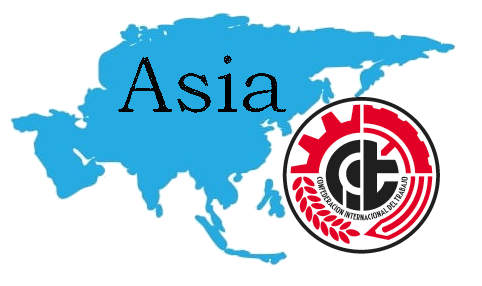The Greek government passed a new education bill in the wake of the COVID-19 lockdown that will worsen the already bad situation at schools in Greece for both teachers and student. The ICL expresses its solidarity with teachers in Greece who are fighting the new laws. The education workers of ESE, the ICL’s section in Greece, have issued the following statement on the new law.
ESE Information on Reform of Public Education
While schools were closed and public meetings and gatherings were completely banned, the Greek education minister commented ironically on the objections expressed by the teachers’ unions that no such bill should normally be brought to negotiation during the lockdown that it was even better this way, as all the educators had enough time to read through the proposed bill and could discuss it on teleconferences instead of calling general assemblies.
That public deliberation phase is now over. The bill is thus finalized and has been voted into law exactly as it had been originally proposed. Among other things, the bill introduces the evaluation of the teachers’ performance. Moreover, during the same period, an amendment to the same law was summarily passed – whereby no time for public negotiation was allocated – that allows the installation of cameras in classrooms on the pretext of providing the students that have to stay at home due to health reasons equal opportunities to attend their classes.
At this point, it is worth taking a look at the reality of a public school teacher in Greece: Actually, most of us do not only teach but carry out a series of administrative tasks such as keeping count of the pupils’ absences, listing them and keeping statistic data, documenting relevant info in the school computer system or notifying the parents on a variety of occasions, as there are no extra secretaries in schools. When the children take a break, we have to oversee their behavior in the schoolyard and even treat wounds, as there hardly any school nurses or other auxiliary staff.
Regarding employment conditions, today more than 30.000 instructors – i.e., approximately a quarter of the total number of active educators – are so-called supplementary staff. Substitute teachers are a cheap alternative to their permanent peers and are deprived of most of the latter’s benefits. For example, pregnant colleagues cannot claim for a school year of maternity leave like the permanent staff, their days of regular leave are deducted from their salary, etc. They moreover work for a maximum of 10 months a year.They have to resign over the summer and live on unemployment benefit (approx. 380 euros a month).
Despite the fact that they might be covering the so-called ‘steady and continuous needs’ of the educational sector, they can be endlessly hired under that temporary status, without ever gaining a permanent contract. This creates a situation where people have to work longer (sometimes over 40 years) in order to be able to receive a full pension! Characteristically, 2019 has been the year where the first person that had exclusively worked as supplementary staff throughout his professional life retired. Furthermore, those colleagues never know in advance whether they will be hired at all during the next term. Even if they are hired, they never know in which part of the country they will get posted. And they also have to be willing to operate as ‘multitasking tools’ (teachers, secretaries, psychologists, social workers and nurses).
Even though the average age of Greek teachers has become older in the last decade, no new permanent staff is hired to replace those that retire at 67, which is the retirement age foreseen at the moment (but which is expected to rise in the near future). Instead, schools remain understaffed and at best vacancies get supplemented by part-time temporary staff for a few months in a year.
All of the above takes place in a starkly underfunded school environment where the number of teachers steadily decreases, whereas that of pupils steadily increases, where classrooms get cold in the winter and hot in the summer, where even basic items like photocopy paper and stationary have to come out of the teachers’ and the parents’ pockets. Even cleaning in most schools gets done by cleaners who work precariously and are severely underpaid.
Within that kind of landscape, the new education bill will bear the following effects:
– Increase the numbers of students in each classroom.
– Increase the numbers of examinations that the pupils will have to take in the last three grades of secondary school. The current minister additionally declared that these tests will also have an impact on the pupils’ capacity to continue their studies in universities and colleges.
– Create elite schools for the ‘top’ students.
– Drive older teenagers and young adults out of the daily, public vocational schools.
– Put teachers under the steady pressure of evaluation from their superiors who are habitually executives selected according to their ideological-political adherence to the ruling party.
As a result, the pedagogical aspect of educational work will deteriorate, as it will be impossible to pay attention to every child’s individual needs and difficulties in large classrooms. The lessons will turn into an assembly line of exams practicing through endless simulations, which leaves us with zero time and space for discovery learning.
Low income and socially disadvantaged children – such as from single-parent working-class families, migrant and refugee children, Roma, orphans and all those facing hardship – will find it very difficult to complete secondary school. Predictably, many of them will leave school.
Teachers will be terminated and face unemployment.
The class divide will become more pronounced even within public schools.
Therefore, we maintain that this bill is unacceptable in its entirety and demand the minister and the government to withdraw it at once! Especially, the provision regarding the installation of cameras in the classrooms contradicts any pedagogical principle and established labor rights.
Also available in:
 Español (Spanish)
Español (Spanish)






![[Greece] 19th of March 2022 International day of action against Detention Camps](https://www.iclcit.org/wp-content/uploads/camps-360x180.jpg)
![[Greece ] Victory to the struggle of Cosco workers](https://www.iclcit.org/wp-content/uploads/cosco2-768x576-1-360x180.jpg)


![[Bangladesh] Dragon Group tries to silence protests](https://www.iclcit.org/wp-content/uploads/rally_june-75x75.png)


